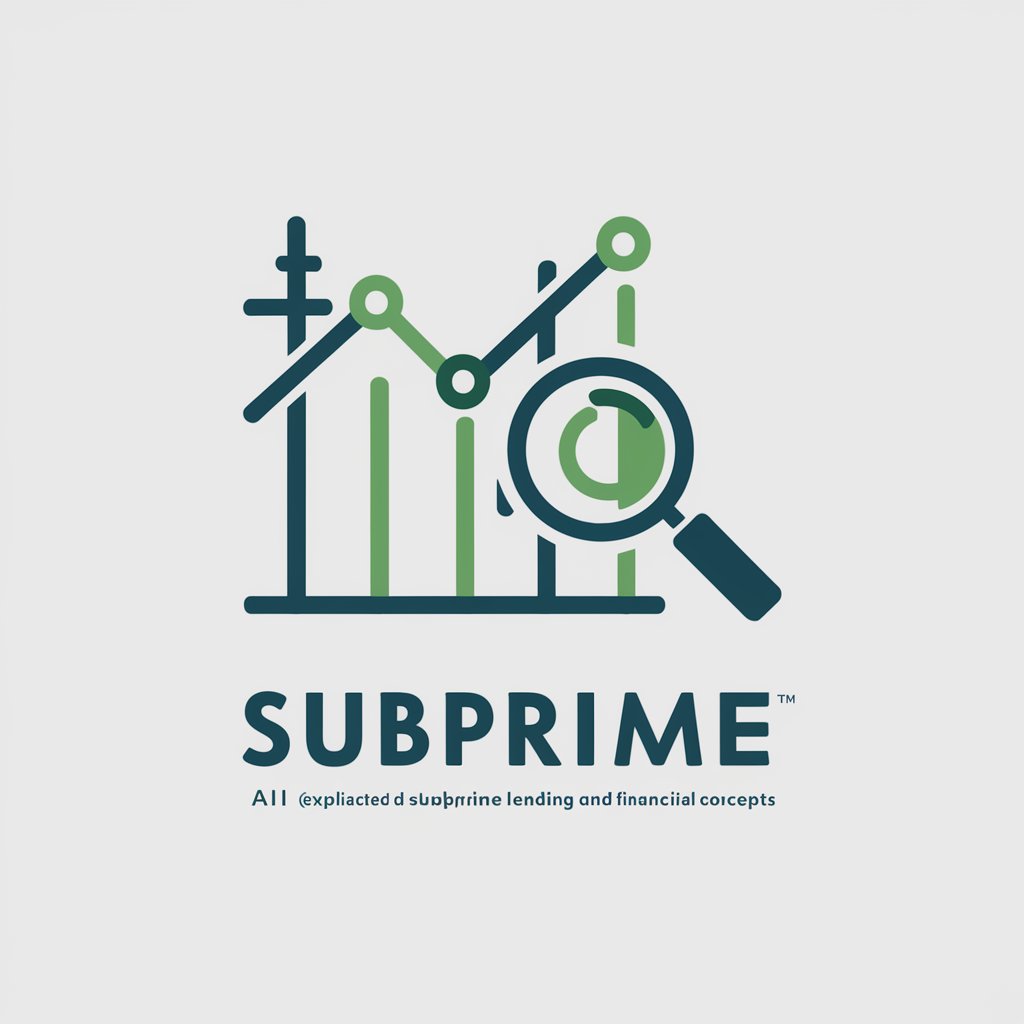Credit Score - Credit Score Insights

Welcome! I'm here to help you understand credit scores better.
Empowering Financial Decisions with AI
Can you explain the key factors that affect credit scores?
How can I improve my credit score?
What are the different types of credit scores?
Where can I check my credit score for free?
Get Embed Code
Understanding Credit Score: An Overview
Credit Score, as a GPT, is designed to educate and inform users about credit scores, their importance, and the various factors that influence them. Unlike traditional financial advisors, this GPT doesn't offer personalized financial advice or predict changes in credit scores. Instead, it serves as a comprehensive resource for general education on credit scores, aiming to clarify their intricacies through examples and detailed explanations. For instance, it can explain how credit scores are calculated, the impact of different types of credit activities, and strategies for credit improvement. A scenario illustrating its purpose might involve a user curious about how their financial behaviors, such as paying bills on time or maintaining high credit card balances, could affect their credit score. Credit Score would provide a detailed explanation of how these activities influence credit scoring, referencing the five major factors: payment history, credit utilization, length of credit history, new credit inquiries, and credit mix. Powered by ChatGPT-4o。

Key Functions and Real-World Applications
Educating Users on Credit Score Factors
Example
Explaining the significance of payment history, which accounts for approximately 35% of a credit score, illustrating how even a single late payment can negatively affect one's score.
Scenario
A user considering taking out a new loan might be concerned about the impact of hard inquiries on their credit score. Credit Score would detail how new credit inquiries could temporarily lower a score, emphasizing the importance of spacing out credit applications.
Offering Guidance on Credit Improvement Strategies
Example
Providing tips on reducing credit card balances to lower credit utilization, a factor making up about 30% of a credit score.
Scenario
For a user struggling with high credit card debt, Credit Score might suggest strategies like debt consolidation or balance transfer cards as ways to manage and improve their credit utilization ratio.
Informing Users Where to Check Their Credit Scores
Example
Guiding users to reputable sources for checking their credit scores, such as major credit bureaus or free credit score websites, without endorsing any specific service.
Scenario
A user new to credit might not know how to access their credit score. Credit Score would explain the difference between free credit report sites and direct reports from credit bureaus, advising on how often to check one's score for accuracy and fraud detection.
Target User Groups for Credit Score Services
Financial Newcomers
Individuals new to managing their finances, such as young adults or recent immigrants, who need foundational knowledge on credit scores and how they impact financial opportunities. These users benefit from understanding basic credit concepts, importance of credit history, and how to start building a good credit score.
Credit Improvement Seekers
People looking to improve their credit scores for specific goals, like qualifying for a mortgage or lowering interest rates on loans. They benefit from detailed strategies and practices that positively influence credit scores, tailored advice on managing and disputing inaccuracies on credit reports, and learning how to gradually improve their credit standing.
Financial Educators and Counselors
Professionals seeking resources to aid in teaching others about credit management. These users can leverage the detailed explanations and scenarios provided by Credit Score to enhance their educational materials, making complex credit concepts more accessible to their students or clients.

How to Use Credit Score
Begin Your Journey
Initiate your exploration by visiting yeschat.ai for a complimentary trial, accessible without the requirement for login or a ChatGPT Plus subscription.
Understand Your Score
Learn the basics of credit scores, including what they are, how they are calculated, and why they matter for your financial health.
Identify Factors
Explore the key factors that influence your credit score, such as payment history, credit utilization, length of credit history, types of credit in use, and recent credit inquiries.
Monitor Regularly
Regularly check your credit score through reputable platforms that offer free credit reports, such as AnnualCreditReport.com, to detect any inaccuracies or fraudulent activities early.
Apply Knowledge
Use the insights gained to make informed financial decisions, improve your credit score, and achieve your financial goals.
Try other advanced and practical GPTs
Mortgage Master
AI-Powered Mortgage Reduction

2023
Explore 2023: AI-Powered Insights

Kalisan Balloons
Elevate your events with AI-powered guidance

La Media Vuelta meaning?
Empowering Insights with AI

A Media Luz meaning?
Empowering creativity with AI

Un Adios A Media Voz meaning?
Enhance Your Writing with AI

🏦 Loan Advisor lv3.4
Empowering Your Financial Decisions with AI

Subprime
Demystifying Subprime Lending with AI

Friendly Fire meaning?
Empowering creativity and efficiency with AI

Name That Baby
Discover the perfect name with AI

Gym Song meaning?
Elevate Your Workout with Music Insight

Sofa Loveseat
AI-powered sofa selection guide

Frequently Asked Questions About Credit Score
What is a Credit Score?
A credit score is a numerical expression based on a level analysis of a person's credit files, representing the creditworthiness of an individual. It is primarily used by lenders to evaluate the risk of lending money or credit.
How is a Credit Score Calculated?
Credit scores are calculated using information from your credit reports, including your payment history, amounts owed, length of credit history, new credit, and types of credit used.
Why is a Good Credit Score Important?
A good credit score is crucial as it determines your eligibility for loans, credit cards, and mortgages. It can also affect interest rates, insurance premiums, and even employment opportunities.
How Can I Improve My Credit Score?
Improving your credit score involves paying bills on time, reducing debt levels, avoiding new hard inquiries, keeping old accounts open to lengthen your credit history, and regularly checking your credit report for errors.
How Often Does My Credit Score Change?
Your credit score can change whenever new information is added to your credit report. This can be frequent, depending on your financial activities and the reporting practices of creditors.
